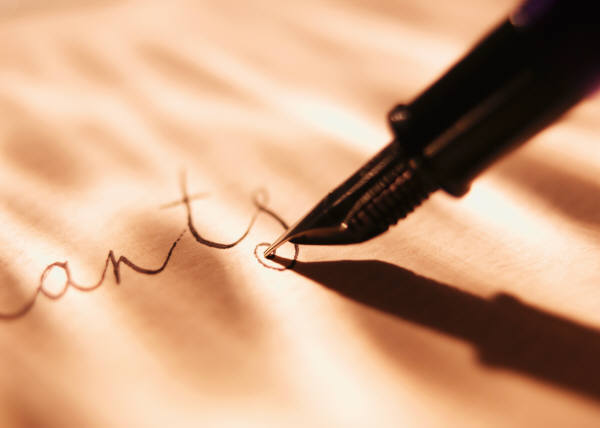One of my readers, Kate, was inspired by something I said over on my Facebook page, and she wrote a post about teaching her students Creative Writing. In a coda, she posted this:
I'm fascinated by the process authors use to write because I want to learn how they create. When I am writing a blog post or an essay, I start with my subject or theme and then the post evolves as I write. I go with the flow instead of planning everything out beforehand. I just write and wander on the page and the style evolves during the editing process…
Teachers, writers, and authors, how do you write and what other tools have you found that students could use? Does your muse hit you on the head with divine inspiration while in the moment? Or do you go charging in with a map of what you will write and leave your strategic mark?
(Full post here)

I can only answer for myself (though I will be dragging my friend Alice into this in a moment). For me, inspiration comes from the space between stories. I tend to be inspired by holes in stories that already exist, be it history or Shakespeare or what-have-you. 'How did the feud start between the Capulets and the Montagues?' 'Where was Shakespeare during his "lost years?"' 'What was the crisis that made Clemens…?' (Well, I can't reveal that one without giving away the whole Colossus game. Same with my idea for an Othello series, or my novel about the Devil). But for me inspiration comes from unexplored territory.
Here's an example. I love the movie Somewhere In Time. Always have. But in thinking about it, I have a question – when Christopher Reeve sees the penny, and starts getting sucked back to his own time, he reaches for her. What if he got hold of her? What would have happened then?
It's a silly question, an irrelevent aside. But that question, right there, was enough to spur my very first novel (the one that lives in a drawer).
When I was a kid, Marvel Comics had a series called "What-If..?" They took famous moments in Marvel history and asked what would have happened if the story had gone another way – what if Gwen Stacy had lived, what if Rick Jones had become the Hulk, etc. Now, that leads into the world of alternate-historical fiction, which is not my cup of tea. I'm not interested in changing what happened in the story. I'm interested in the parts of the story we don't see. But still, questions like What-if lead to interesting places.
So that's where my initial ideas come from – holes in history or stories. Untold stories between stories. Which, oddly, sets me up to know the ending first. Every project I dive into, I'm writing towards a known ending. I just have no idea how I'm going to get there.
What next? First I have to figure out my characters. I look to history for that, and if history doesn't help, I'll invent someone who can somehow intertwine all the events I have planned.
Next, I'm clueless, so I cast about for help. Since I'm writing Historical Fiction, this is where research comes in. For me, all the good stuff happens in the research. Dante was in Verona at this time? And he mentioned the Capulets and Montagues? And Josephus was in Rome right after the Great Fire, when they executed Saint Peter? And on and on.
Even the small things come from the research. During the writing of Voice Of The Falconer, I was stuck. Cesco was being chased through the streets of Verona, and he needed to slip into a house unseen to meet young Romeo. I already had lots of roof-climbing and wasn't interested in more just then. So I went back through my notes, and found a scrawled something about "death doors." While we were honeymooning in Verona, some friends of ours took us on a walking tour. As we passed a house, the husband casually pointed out a death door. In the Middle Ages, the living and the dead could not use the same door in a house. So there were these waist-high doors built into the larger houses used only for allowing the dead to exit the premises. So being at death's door was a real thing.
Naturally, Cesco being Cesco, he decided to enter via death's door. Voila, a scene is born, with great prophetic import and a whole lot of fun.
I cannot tell you how many times research has answered whatever question I was having. Now, that might be cheating, I don't know. But if I'm ever stuck, I hit the books and look for some new detail to hang a scene on.

Back to Kate's question. My answer is this: inspiration makes you want to write the story, and the rest is just plugging through. My process is to have my idea, have my characters, have the research behind me, and dive in to see where it all leads me. If I'm being true to the characters, they lead me, they surprise me. Human interaction is at the core of all drama. I don't go in knowing exactly what everyone will do, and I won't force my characters to do something they wouldn't (I hate when watching a movie or reading a book, a character does something completely stupid in order to further the plot). I don't want to know everything before I write a scene, or a chapter, or a book. For me, writing is a process of discovery.
Whereas my dear and gifted friend Alice Austen knows every word before she sets it down on the page. She has it all laid out before she ever sits down. I couldn't do that. If I know what's going to happen, how it's going to happen, there's no joy in the writing for me. But Alice is a far more elegant, eloquent writer than I. Her writing is deep and far from my pedestrian, workman-like prose. So her process works spendidly for her.
Which brings us to the awful, wonderful truth – there's no one secret to writing. There's just writing. Each person's process is going to be different, and it won't work for everybody else. You break out in a sweat over a class deadline? I hated writing for classes, too. But then I had a friend who hadn't written anything and needed to turn something in, and I wrote him a story (this was in high school, and yes, I know it was wrong). Suddenly I was free! It became a joy to try to write stories in other people's voices, telling the tales I thought they would tell.
It was a lesson I would re-learn years later. Not the cheating. How to free myself to write.
I make a lot of references to The Novel That Lives In The Drawer. I wrote it when I was 19. I was very, very, very proud of it. I poured my heart into it. And now, 20 years later, I am considering dusting it off and seeing if there's anything good in there. But part of me wants it to stay in the drawer forever. Because that was the novel that freed me.
How? By pouring myself into that novel, by writing about my own personal hopes and dreams and fears in thinly-veiled "fiction," I somehow managed to get past my own ego. I didn't want to write about ME anymore. I wanted to write stories. That novel was the one I had to write so I could get out of my own way.
People today like to ask if Pietro is me, or if I'm Cangrande (God, I wish), or Judah or Marlowe or any of the cool characters I write about. And I say, no. I am not a character in my books (except when I have Petruchio sparring with Kate – that's me and Jan).
But seriously, I couldn't write the stories I do if I were concerned with me, David. My focus is on the story, the characters, the structure (structure is hugely important, and I'm certain to screw it up on the first draft, and even the second or third. Structure reveals itself to me, and is never, ever what I think it is at the outset).
To sum up, David's tricks to writing are as follows:
1 – Be inspired by the space between stories
2 – Research
3 – Let the characters be true to themselves, never force them to do something they wouldn't
4 – Remove your ego, get out of your own way
But remember, ask any other writer and they'll tell you something completely different. What you have to do is try everything, and see what works for you.
It was probably a longer answer than Kate was looking for, and a bit rambly. But it's the end of a long day of writing. I hope it made some sense. Just remember – there is no spoon.


This is extremely helpful info!!! Especially you are so loyal to this !! Very good. Everything is true. Thanks.